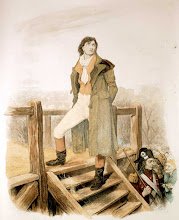
Party politics should be much more of an issue than it presently is recognized to be. Politicians and voters contain themselves in groups of those sharing the same ideology. As this is good for inner-camp consensus building in one respect it is equally harmful and divisive to those of other opinions. Political parties choose opposing views and dig their heels in.
Voter registration records will tell those in a political race how hard they have to work to win an election. To candidates, they already have those who are declared to be on the Red team or the Blue. If the margin is close they try selling their message to registered independents.
During major elections one will often find articles regarding how unfair the two-party system. These articles focus on how another party doesn’t have a chance because the Reds and the Blues squeeze them out and prevent them from joining the debate. The inclusiveness issue may be the wrong direction to go in to gain political voice equality.
Let us consider ridding the nation of political parties. The outcome would be that anyone running for office would be standing upon their own platform. They would not have to yield their beliefs for the good of the party. They would not have to tow the party line just to get funding for their campaign. Another benefit would be that one person could not cast a shadow on an entire group.
Think of the problems that befell the Republican Party last year when several of their members were ousted from politics for their poor judgment or bad behavior. Democrats have had many black eyes in the past as well. These parties count on their good members raising their image.
However, what if there were no parties, just candidates with their own ideas? There are many Independents in politics. They have their own ideas and don’t have to run on the party line. People often find Independent candidates refreshing because they think outside the box, Jesse Ventura being the most visible in recent years. There have been candidates such as John Anderson in 1980 and Ross Perot in 1992 that were not only on the national stage but had garnered a good amount of support because they were out of the main stream of the two party candidates.

5 comments:
We forget so soon that our country HAS thrown out other parties in the past, and we can do it again. Where are the Whigs? The Know-Nothings? Heck, a Lincoln Republican is now called a Democrat.
But, as Steven Weber pointed out on Real Time this week, we, as a country are sated to a degree that we have never been before. It makes us dozy and tired, and thus I think that sort of change is slower, but it is occurring.
We may have thrown them out to start over or renovate them but we still continue to have parties.
Go back to the way it was when the VP was the one with the second highest votes! Get rid of the electoral college. Two steps in the right direction. Write in independents all of the time. I thought people who didn't belong to a political party were called nonparticants and that independent was a political party?
I agree about the electoral college and the days when the VP was the one with the next highest votes.
They are a platformless party with no unified goals other than to knock the snot out of the Democrats and Republicans. Cool idea about the VP Mo3
I have had many conversations with my brother in law from Norway on this very same topic. No kidding, hours and hours of conversation.
Though he has lived here for 20 years, he still shakes his head at the fact that there are only 2 main political parties for americans to chose from. Where he is from there are more than 2 'flavors' and he doesn't understand why our country doesn't get that. More parties would give people more choices and more voice, he is always saying.
He constantly shakes his head during election time (our families are rabid about politics around that time) with 'how we choose' between our limited choice.
Post a Comment